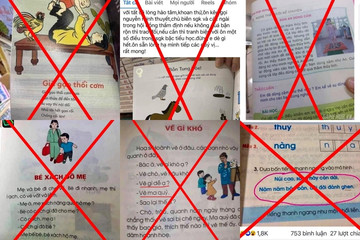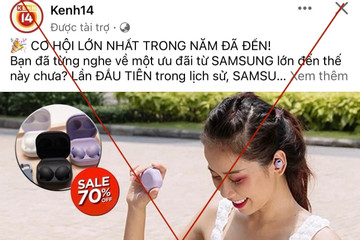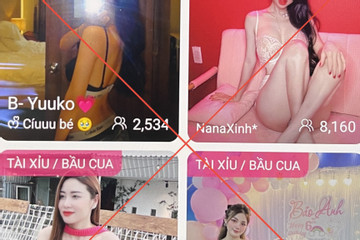- © Copyright of Vietnamnet Global.
- Tel: 024 3772 7988 Fax: (024) 37722734
- Email: evnn@vietnamnet.vn
social networks
Update news social networks
New decree exempts small social networks from licensing in Vietnam
Social networks with fewer than 10,000 visits or 1,000 regular monthly users will no longer need a license under the recently issued Decree 147.
Social network users must authenticate accounts from December 25
Livestreamers who work commercially will have to use personal identification numbers to authenticate their accounts.
Parents are worried as children overuse social networks
Children’s regular use of social networks and their access to ‘dirty’ websites are worrying parents.
Violations continue to be found in ads on social networks
Advertisements about gambling games and betting on online channels remain a headache for state management agencies. The problem cannot be solved because of the lack of clear regulations.
Ministry wants to tighten control over ads by KOLs with 500,000 followers
The Ministry of Culture, Sports and Tourism (MCST) has proposed supplementing a new provision about advertisements by social network users who have 500,000 or more followers.
Fake news appears again on social networks
Over the last week, fake news appeared on social networks, causing disorder among communities and affecting businesses.
Netizens complain about porn, gambling advertising on Facebook
Pornographic livestreams, advertisements for fraudulent applications, gambling, and fake and counterfeit goods have been seen on Facebook recently.
Pornography, gambling livestream apps flood Facebook, Google
Many ethical issues have arisen recently on Facebook and Google, including ads for callgirls and pornography and gambling livestream apps.
New decree on Internet services expected to 'clean up' cyberspace
Social networks will be required to remove content found in violation immediately. Such accounts, community pages and content channels will be locked. The heavy sanctions are expected to help clean up cyberspace.
Facebook's speed in removing violations hindered by lack of representative
As Facebook is using artificial intelligence (AI) to review and censor content and lacks an official representative in Vietnam, breaches of the social network are not being solved promptly.
Gambling activity raging on social networks
While the number of gambling adverts have decreased on TikTok, they are flooding Facebook. Gambling games exist blatantly under different forms, from ads to livestreams, from videos to groups and fanpages.
Management of artists, celebrities’ activities on TikTok to be inspected
An inspection of TikTok operations in Vietnam will be conducted in May and one of the eight contents to be inspected is the management of artists and celebrities’ activities on the short-form video network.
White List helps businesses make decisions about ad placement
Experts say advertising on social networks is a double-edged sword. If businesses go the wrong way, they will destroy their brands.
MIC to stop websites acting like newspapers
In 2022, the number of licensed news websites and social networks decreased by 10-30 percent compared with 2021.
Revenue from mobile digital content drops
Monotonous content with little creativity is why the revenue of businesses providing services on mobile telecommunications networks in 2022 dropped by 20 percent.
Control of bad content on social networks should be tightened
Tik Toker No O No, who criticized the poor, was boycotted by the community and forced to shut down by the authorities. He is not the first Tik Toker that has posted bad content on social networks.
Google, Facebook, TikTok, Apple and other int'l platforms pay VND1.8 trillion in tax
The amount of tax paid by cross-border platforms such as Google, Meta and Netflix in January-October 2022 was VND1.8 trillion, according to Dang Ngoc Minh, Deputy General Director of the General Department of Taxation (GDT).
Foreign social networking services dominate nearly 70 percent of market share
Answering questions from deputies at the National Assembly session, Minister of Information and Communications Nguyen Manh Hung revealed that foreign social networking services dominate nearly 70% of the market share of online advertising revenue.
NA deputies suggest tougher sanctions for violation of law on social networks
Out of more than 30 million internet users in Vietnam, about 87.5 percent are using social networks in the age group of 15-34 accounting for 71 percent.
Handling of harmful information needs joint efforts: NA deputies
The removal of harmful information on social networks as a countermeasure requires the involvement of competent agencies as well as the close coordination among State management agencies, legislators have said.



















